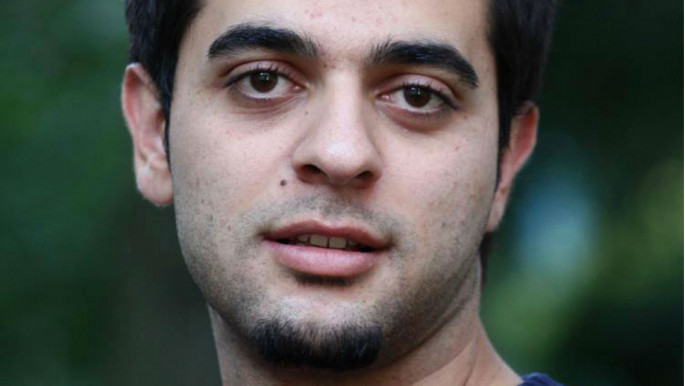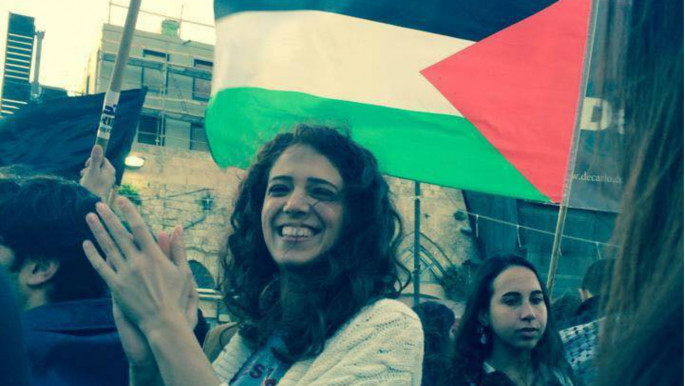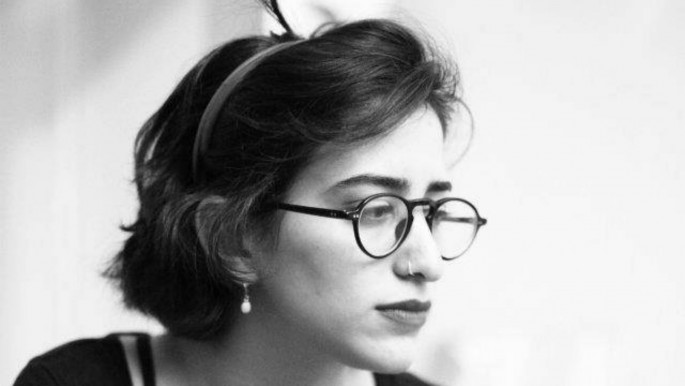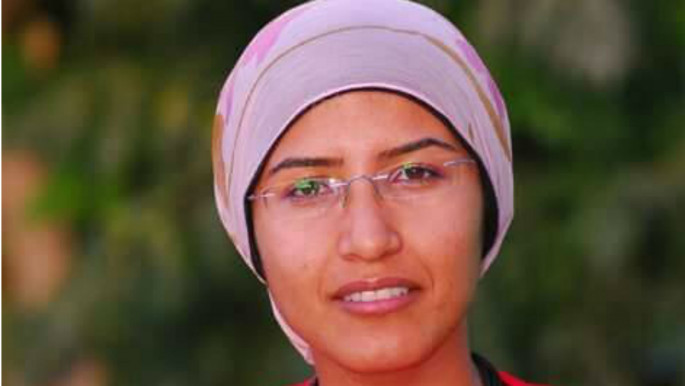Israel elections: To vote or not to vote?
When the British Mandate of Palestine ended, and the land was colonised to make way for the Israeli state in 1948, many Palestinians remained within the borders of the newly established state.
While around 800,000 Palestinians were expelled and Israel continued to expand through further land expropriation, Palestinians still make up some 20 percent of Israel's population - 1.3 million people, who live under an apartheid-like system of discrimination.
Their political representation has always been fragmented, and they have never held serious political influence.
Is this about to change?
A coalition of the three ideological trends that represent the majority of the Palestinian citizens in Israel could yet emerge as Israel's newest power bloc.
The United List, comprising the communists of Jabha, democratic nationalists in the NDA and the Islamic movement, was formed to contest the 20th Knesset elections.
Its leaders emphasise the historical importance of this unification as reflecting an essential need and a long-standing demand of the Palestinian community in Israel.
They play down suggestions the alliance was a politically necessary tactical move to bypass a new election regulation.
The electoral threshold in order for an individual party or list to win a seat in the Knesset, Israel's parliament, his risen this election from two percent to 3.25 percent - a measure pushed by Israel's prime minister, Binyamin Netanyahu, and foreign minister, Avigdor Lieberman.
It was expected that such a rise in the threshold would prevent any small parties - particularly "Arab parties" from winning parliamentary representation.
Palestinians accused Lieberman, notorious for his anti-Arab initiatives - who most recently called for the beheading of Palestinian citizens who are "not loyal" to the Israeli state - of trying to prevent Palestinian political representation in the Israeli Knesset.
The most recent polls indicate that the United List is to gain between 12-15 seats in the Knesset, forming the third largest block after Likud and the Zionist Union.
However, there has long been a debate within the Palestinian community around the principles and usefulness of participating in Israeli elections.
Al-Araby Al-Jadeed spoke to some Palestinian citizens of Israel and asked about their opinions regarding the United List, if they would take part in the elections and what might happen next.
Rabeea Eid, editor of Fasl al-maqal newspaper
 |
"The agreement of Arab parties inside Israel to enter the elections with a joint list is an important historic achievement in course of Arab politics inside Israel.
"For the first time, we see the unification of three currents: the democratic nationalists, the communists and the Islamists, at a time when Palestinians are facing deep and dangerous divisions, while Arab countries are also facing divisions and disintegration.
"Unity will provide the Arabs of Israel with greater political power, which will help solidify their national struggle against the policies of the Israeli coloniser, which views us as enemies and wants to turn us into "Israeli Arabs", stripped of our Palestinian identity.
"We believe that this unity should continue beyond the elections and should be institutionalised as part of a process of national organisation that supports the joint struggle of our people, as Palestinians who remained in their homeland after the Nakba and who were forced to take on Israeli citizenship.
"We believe this is an opportunity to increase our strength as nationalist parties, and increase our influence within our societies to combat divisions, violence, sectarianism, and political apathy."
Maha Ighbaria, student at the College of Law and Business, Tel Aviv
 |
"We perceive our boycott as a necessary act of rejection of the Israeli Knesset, the institution which legitimises Zionist aggression.
"Representatives in the Knesset have to swear the oath of the Zionist state with every government formation.
"The participation of Palestinian parties is used by Israel to augment its international image as an actual democracy rather than an ethnic one.
"Furthermore, Palestinian participation in elections has been experimented with for 20 years - and it has proved to be ineffective in advancing the struggle of Palestinians in Israel. Prior to having Israel accountable for its atrocities, any involvement in its system is inevitably a call to turn the page on the history of Israeli aggression, whether we know it or not.
"The alternative to this massive compromise is for Palestinians to unite over other grassroots initiatives that empower the Palestinian community within Israel as an alternative to elections and pseudo-democracy."
Lama Suleiman, Sociology student at Ben Gurion University
 |
"I haven't voted for the Israeli parliament for quite a while now.
"The reasons are diverse and obvious. My personal politics are such that I suffer from chronic cynicism about our political representatives, but more importantly I do not think Palestinians should take part in Zionist politics - a system by which we are complicit in our own repression.
"For more than a decade, Palestinian citizens of Israel have been calling for the formation of a united Arab list - however, for years and years the addressed parties have ignored such calls.
"Today, it has finally happened - though perhaps for less admirable reasons. Boycotting Israeli elections would have been the more noble thing to do - and could have perhaps have led to more interesting and powerful forms of a united Palestinian resistance.
"However, one cannot remain a utopian forever.
"Looking at the reality of Palestinian society inside Israel, one can see that we do not yet have other alternatives for our struggle. While I respect and identify with the call for boycott, I must condemn it as ineffective - just as participation in parliament is - as far as yielding any results is concerned.
"For now, I have decided to give my vote as an act of solidarity to empower those who still believe, or could perhaps be deluded, that change is still possible."
Malak Abass, interior design student at the College of Management Academic Studies
"The united Arab list has changed the discourse in the Arab arena to a discourse about our rights as a full Palestinian society within Israel. In previous elections, Arab society was engaged in disagreements between the various political parties. This time, the focus is on the shared interests of everyone.
"I expect the Arab list to inject a human dimension within Israeli society that is filled with racism, and to portray the Palestinians within Israel as original residents who have been here for generations, and not as foreigners. I will vote for the first time because I believe that it will be effective and not a wasted vote, because we will be the third-largest bloc in the Knesset."
Minem Maroof, co-founder of Hamleh - the Arab centre for social media advancement
 |
"As a Palestinian who boycotts the Israeli elections for ideological reasons, I find this move to unite Arab parties to be proof of failure.
"This move proved the Palestinian representation in the Knesset is motivated mainly by the personal interests of individuals leading these parties. It also proves that, due to the way the Knesset has alienated the Arab representatives throughout the decades of their parliamentary work, Arab parties have neither the strategy nor the power to represent or lobby the interest of Palestinians inside or outside Israel.
"In previous elections, I had a bit of dilemma as to whether or not to participate. The reason was the way I saw democratic practices instilled in my society as a result of [Palestinians in Israel] engaging in the Israeli elections.
"As a person believing in pragmatic nation building, I saw that as a step in the right direction for my society, Palestinians in Israel.
"In previous elections, we had three Arab political parties claiming to representing us in the Knesset. Three different parties with three completely different political agendas: one socialist (Jabha/Hadash) one national democratic (Tajamo’/Balad) and one Islamist (Alarabiyya Liltaghyeer/The Arab Movement for Change).
A mere 800,000 of eligible voters are Palestinian. [They used to have] three unique and completely different ways to be represented, which showed political maturity and praiseworthy democratic thinking.
"Now, as a result of Lieberman's initiative to raise the threshold for parties to join the Knesset, Lieberman succeeded in reducing our political representation in the Knesset from a healthy democratic practice to a shameful ethnic representation of indigenous communities.
"Boycotting the Knesset and using our political power to bring visibility to Palestinian citizens in international venues should be the response to this attempt to silence us. Palestinian citizens of Israel face dangerous demonisation and attempts of ethnic cleansing that are openly declared by political leaders like Lieberman, who only last week said Palestinian citizens who show disloyalty should be beheaded; so would bringing aid to fellow Palestinians under siege in Gaza be considered an act of treason?"
Huda Abu Obeid, director of the Negev's Jasmine Association
 |
"When Netanyahu announced elections and the disbanding of the government, we Palestinians understood that there was not enough time to unite the Arab parties in Israel, simply because there are many methodological and ideological differences between these parties and the timeframe to present the candidate lists, would not be enough to overcome these differences.
"One of the suggestions that was presented was to agree on two lists instead of one, to give the Arab voter a chance to actually vote, ie: choose which political party to support, instead of just giving their vote to an 'Arab list'.
"However, this time the Arabs finally agreed to have one list that includes all Arab parties without them giving up their specific characteristics or ideologies.
"A Palestinian like myself who can vote in the Knesset elections starts wondering about the point of voting in the first place. I wonder, with those around me, about the future of this country and about our participation as Palestinians in voting and whether we should boycott these elections?
"During a recent conversation, I firmly concluded that we should vote because we live here and we need to challenge the racism of this country and stop the racist laws that are being passed against us.
"If we were to boycott, let us imagine for a minute that Arabs were able to attack Israel and dismantle its control over the holy lands, can we as Arab Palestinians live together with all of our differences? What will we do with the Israelis?
"Let us look at what is happening around us in Iraq and Syria and let us learn from their unenviable situation, and let us give the joint list a chance to attempt to create tolerance amongst us. Perhaps it would be a start."
Majd Kayyal, writer and blogger
 |
"I will vote for the joint list because it is a framework that unites the national movement in Palestine and because it is a pluralist entity, as party differences need to find a place within Palestinian society, but not when confronting Israel.
"We are socially and ideologically different within our society and national institutions, however we are nationalistically united against Israel. Participation in elections is a necessity for the nationalist movement, not a choice.
"We cannot predict the future, however the radical shift in our relationship with Israel cannot be achieved through the Knesset alone, but requires the mobilisation of the parliamentary force to initiate a popular confrontational struggle with the Israeli state.
"The existence of large unified bloc will prevent the ability of Israel to single out a party and persecute it, and our duty is to apply pressure within this bloc to escalate the anti-Israeli discourse that rejects the Jewishness of the state and supports the resistance. This is the only positive change possible."





 Follow the Middle East's top stories in English at The New Arab on Google News
Follow the Middle East's top stories in English at The New Arab on Google News


